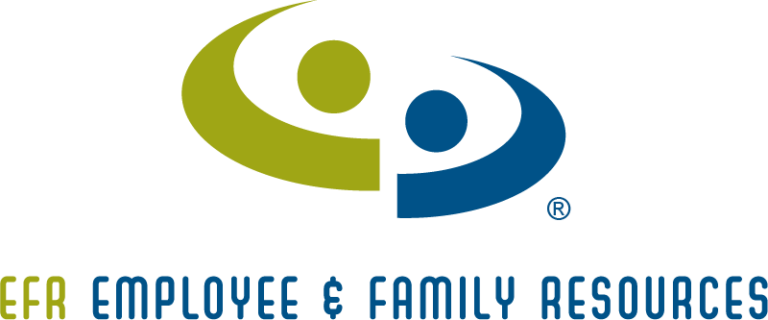Behavioral Health and Well-Being
Life Happens. We’re Here to Help.
Home / How We Help / Work / Workplace Training / Training Catalog / Behavioral Health and Well-Being
"Behavioral health is an important part of our overall well-being."
What is behavioral health, and why does it matter in the workplace? Behavioral health encompasses our mental and emotional health and is an important part of our overall well-being, but is often ignored or avoided. By understanding the prevalence and impacts of mental illness on the individual, you can better understand and manage the impacts on the workplace. Your employees’ total health not only affects their individual performance, but can also have an impact on your organization’s bottom line.
Training Options

Audience:
Managers & Supervisors
Length:
1 hour
Learn about the spectrum of emotional health, the prevalence of mental health and substance use disorders, and how they impact your workforce. Each employee comes to work with an “invisible suitcase” full of issues and concerns that can distract them and disrupt their work. Learn ways to identify signs and symptoms of behavioral health problems and ways to address and manage them. Healthy employees, both physically and emotionally, are more productive and have a positive impact for your business.
Course Objectives:
Learn why behavioral health matters
Explore how unaddressed behavioral health issues can negatively affect your organization
Identify signs and symptoms of common behavioral health concerns
Receive practical suggestions for addressing and managing behavioral health concerns in the workplace

Audience:
Employees & Managers
Length:
1 hour
This training provides an overview of common mental health concerns with a discussion around the potential impact depression, anxiety, and substance use disorders can have on the workplace. Treatment methods and suggestions for addressing mental health concerns are also discussed.
Course Objectives:
Define depression, anxiety, and substance use disorders
Discover the impact mental health concerns can have on your organization
Receive practical suggestions for addressing mental health concerns

Audience:
Employees & Managers
Length:
1 hour
According to the World Health Organization, 300 million people around the world have some level of depression during at least one point of the year. This training identifies some common signs and symptoms of depression and explains the spectrum from sadness to major depression.
Course Objectives:
Identify signs and symptoms of depression
Understand the varying levels and duration of sadness and depression
Learn about some common treatment options for depression

Audience:
Employees & Managers
Length:
1 hour
Learn about the spectrum of substance use from non-use/abstinence to addiction and chemical dependency. This training covers how substance use disorders are defined and diagnosed.
Identifying signs and symptoms of problematic substance use and common treatment methods
are also discussed.
Course Objectives:
Identify signs and symptoms of substance use disorder issues
Understand the different levels of use along the spectrum of substance use
Learn how a substance use disorder is defined and diagnosed
Discover common treatment modalities

Audience:
Length:
Employees & Managers
The course can be delivered in one of three ways:
- In-person – 8 hour in-person classroom setting (limited to 30 participants)
- Virtual/In-person – 2 hour online pre-course work followed by 4 hour in person classroom setting (limited to 30 participants)
- Virtual – 2 hour online pre-course work followed by 5.5 hour virtual format on Zoom or similar platform (limited to 15 participants)
Mental Health First Aid is a training course designed to provide key skills which enable course participants to help someone who is developing a mental health problem or is experiencing a mental health crisis. Just as CPR training helps a layperson without medical training assist an individual following a heart attack, Mental Health First Aid training helps a layperson assist someone experiencing a mental health crisis. Mental Health First Aid certification must be renewed every three years.
Course Objectives:
Recognize the potential risk factors and warning signs for a range of mental health problems
Use a 5-step action plan to help an individual in crisis connect with appropriate professional help
Interpret the prevalence of various mental health disorders in the U.S. and the need for reduced negative attitudes in their communities
Apply knowledge of the appropriate professional, peer, social, and self-help resources available to help someone with a mental health problem treat and manage the problem and achieve recovery

Audience:
All Employees
Recent data indicates most employees have struggled personally or supported a loved on who struggled with a mental illness. Talking about emotional wellbeing can be challenging. Not talking about can promote negative stigma, increase stress and contribute to a negative work environment. This general education session provides baseline knowledge of mental health conditions, substance use disorders and prevalence. In addition facilitated, guided discussion around suicide and risk factors contributing to suicide is addressed. Participants will be provided local resources and a leave with better understanding of where to access behavioral healthcare for themselves and others.
Course Objectives:
- Understand how common mental health and addiction is in your community
- Signs and symptoms of worsening mental health, substance use and suicide indicators
- Intervention strategies
- Knowledge of local resources and supports

